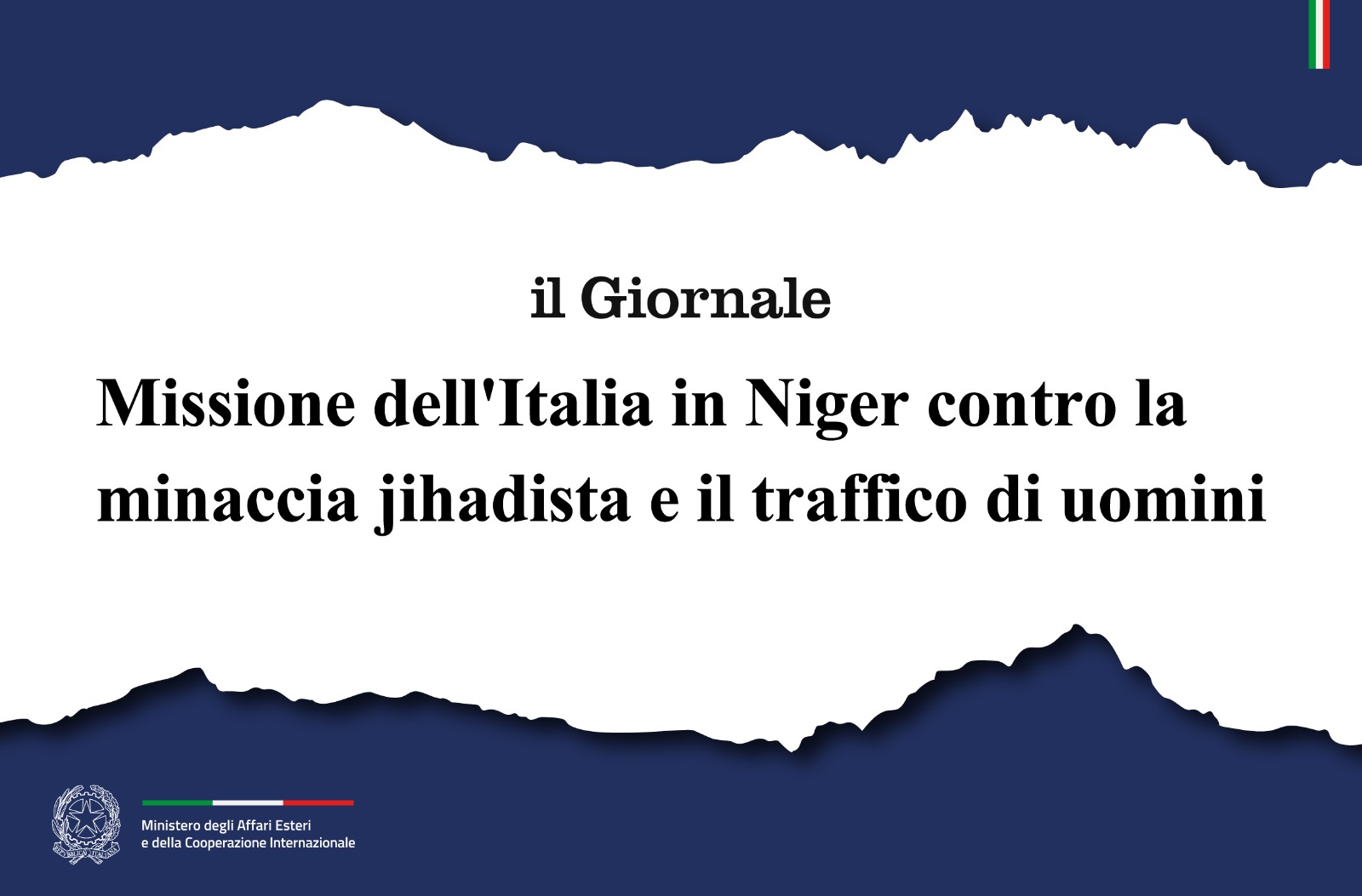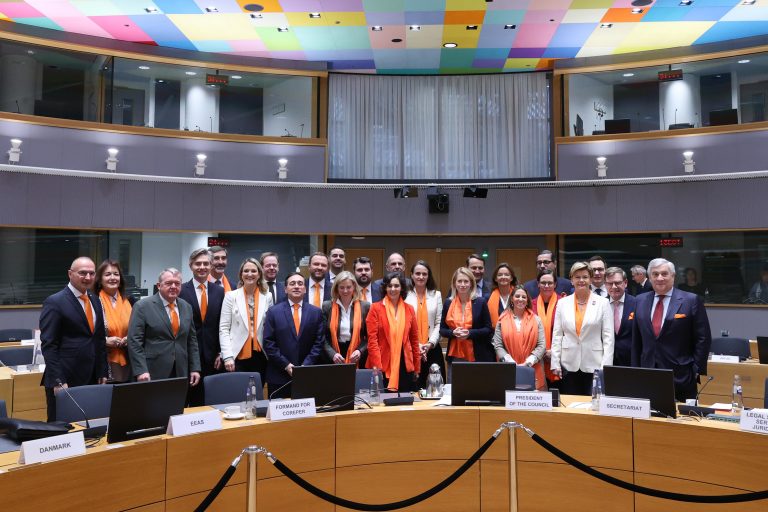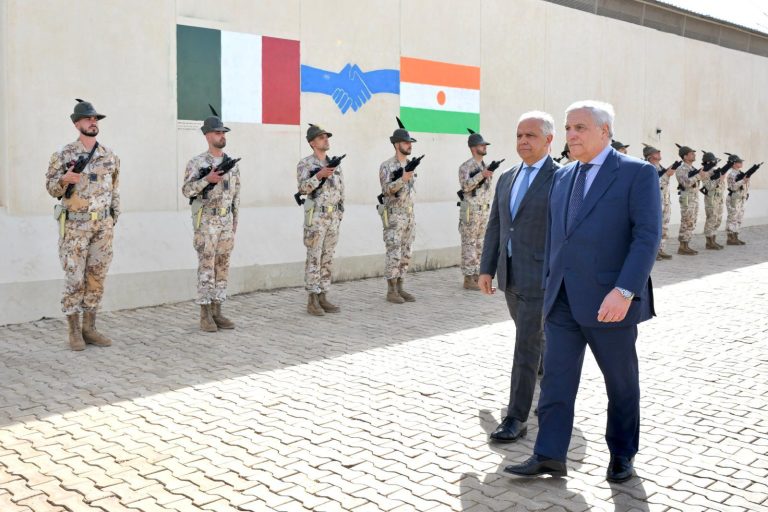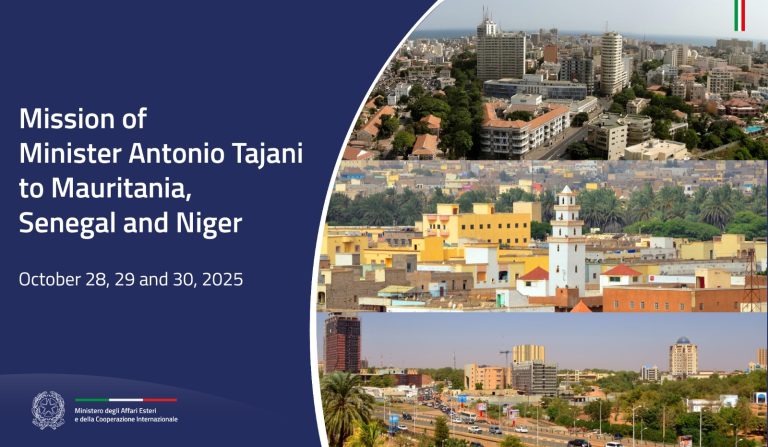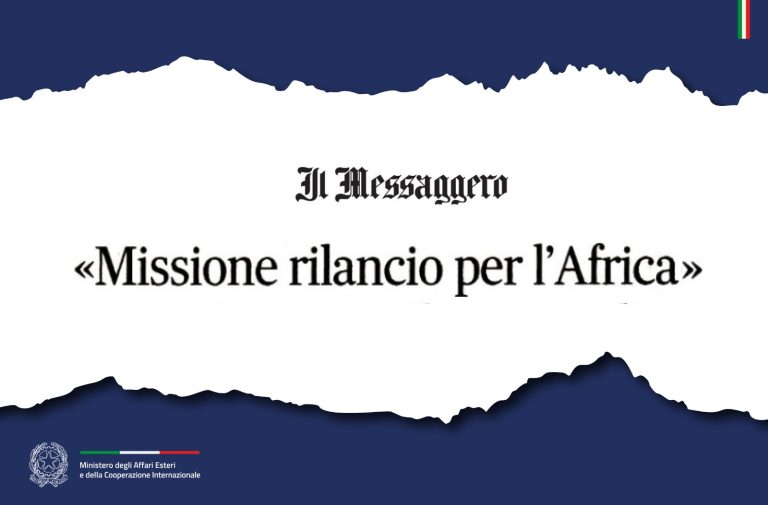“The mission to Mauritania, Senegal and Niger has helped strengthen Italy’s role in Africa,” Minister of Foreign Affairs Antonio Tajani told Il Giornale by phone during his return flight. The Deputy Prime Minister was accompanied by the Minister of the Interior, Matteo Piantedosi. From Niamey, Tajani conveyed Italy’s message: “We count on Niger to guarantee the stability of Sub-Saharan Africa”. Rome seeks to position itself as a European and Western voice for engagement with the Sahel. Niger was the most delicate leg of the tour. Italy has taken the lead where the European Union has remained paralysed — unwilling, in the name of political correctness, to engage with the military junta that seized power in 2023.
Officially, this stance is rooted in principle, but in practice, Paris has pressed Brussels to maintain its hard line against the Sahel’s military regimes, which expelled French troops while drawing closer to Moscow. Italy is now the only Western nation still present in Niger, with a 350-strong military contingent. The ministers’ visit underlined that “maintaining this friendship is crucial to ensuring regional stability, combating illegal migration and countering terrorism”. Breaking ties, by contrast, would mean “abandoning the country to Russian influence and opening the door to increasingly aggressive jihadist groups”. Just a week ago, an American lay missionary was kidnapped in Niger and taken into neighbouring Mali. The White House is reportedly considering a special forces raid to secure his release.
Over the past year, Niger has seen a surge in attacks by Islamic State and Jama’a Nusrat ul-Islam wa al-Muslimin (JNIM), al-Qaeda’s regional affiliate — sometimes coordinating operations in what observers describe as an “alliance of terror”. As a result, several Nigerien army units have mutinied, citing poor equipment and inadequate resources. The Italian Foreign Ministry (Farnesina) has reported a “growing and significant blockade of fuel convoys into Mali by terrorist groups,” causing a nationwide shortage with severe knock-on effects for electricity supply — a situation that could further destabilise even the capital, Bamako. Italians have been advised to leave the country. According to Italian intelligence, if jihadist forces destabilise Mali, Burkina Faso and Niger could be their next targets.
In Niamey, Tajani and Piantedosi met with Prime Minister Ali Mahaman Lamine Zeine and seven cabinet ministers, including the Ministers of Defence and Foreign Affairs. “We renewed our readiness to cooperate in line with Italy’s distinctive approach — sharing challenges with our partner countries. Our Nigerien counterparts strongly requested enhanced police training,” said Minister of the Interior Piantedosi. “Italy places great importance on Niger’s role in ensuring the stability of the sub-Saharan region,” Tajani added. “We want to contribute to the fight against terrorism and irregular migration, and we are ready to strengthen cooperation, including in the economic sphere — from extractive industries to agriculture — through agreements that are mutually beneficial”.
The Agadez region remains a key crossroads for human, arms and drug trafficking. Migrants continue north towards Libya, and the situation has worsened with the brutal war in Sudan. In 2024 alone, over 3.8 million people transited through Niger, including 1.5 million outbound migrants. Jihadist groups operate on multiple fronts: along the Libyan border, Islamic State’s Fezzan faction remains active; in the southeast, an ISIS offshoot with roots in Boko Haram continues to operate; and around the capital, in the volatile “tri-border” area with Mali and Burkina Faso, al-Qaeda’s JNIM coalition remains the dominant force, alongside the Islamic State in the Greater Sahel Province. Niger’s Prime Minister suspects that France, expelled from the country, is covertly funding jihadist insurgents in an effort to topple the junta. Italy, by contrast, advocates within the EU a flexible and pragmatic approach towards Niger, aimed at maintaining strategic engagement against irregular migration and the jihadist threat.
France, however, continues to block any move towards re-engagement with the Sahel’s military regimes, which have ended its long-standing influence in the region. The United States and Germany have also withdrawn from Niamey, but Italy remains on the ground through the Italian Support Mission in Niger (MISIN), comprising 350 troops under the command of General Ivan Cioffi. Since 2018, Italy has trained 11,459 Nigerien personnel, from paratroopers and National Gendarmerie officers to police and Presidential Guard units. The Italian Defence Ministry has supplied four Leonardo AB-412 helicopters, though all are currently under maintenance in Italy or Niger. Despite political tension and instability, bilateral trade has rebounded in the first half of the year, reaching EUR 395 million. Niger aims to attract investment in its mining sector, which holds vast reserves of gold and uranium. Yet the advance of jihadist groups in Mali and the influx of refugees from Sudan remain destabilising factors of direct concern to Italy. If Niger were to fall into jihadist hands or descend into anarchy, it would become an even more significant gateway for migrants crossing Libya before embarking for Lampedusa.

